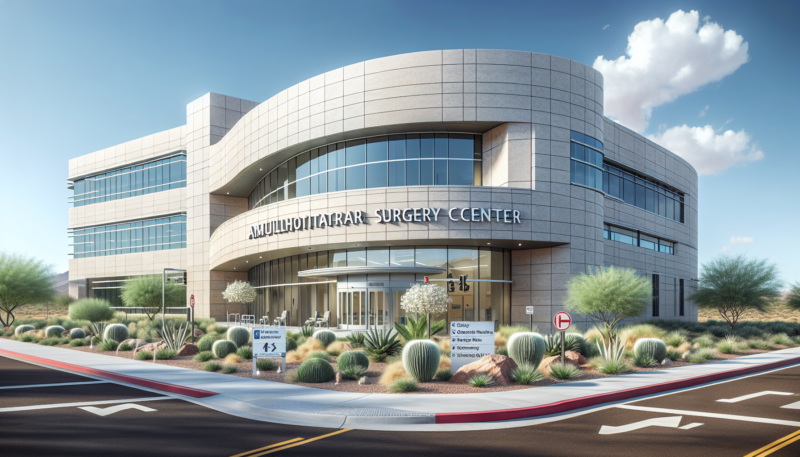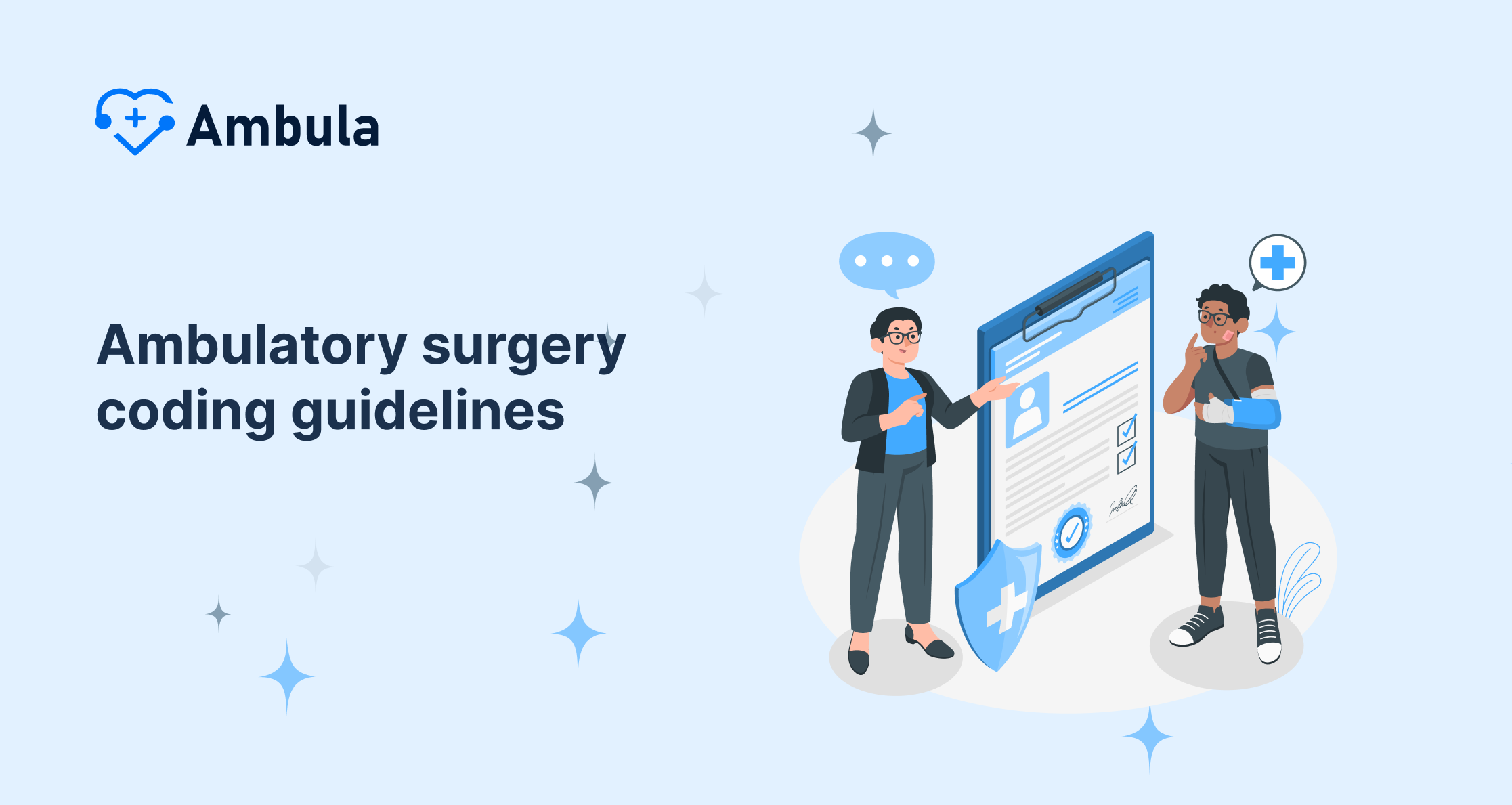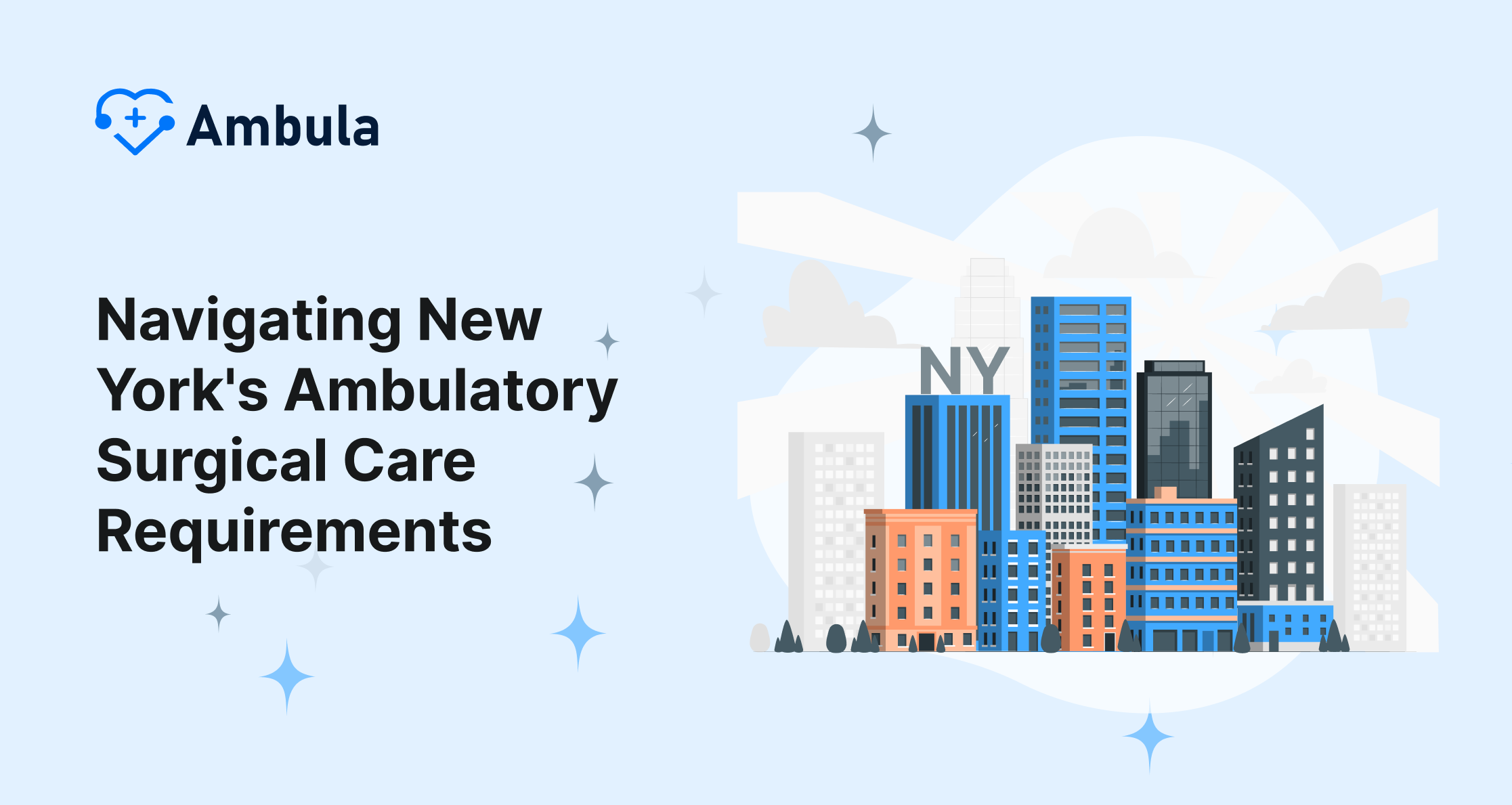
Arizona Ambulatory Surgery Center
It’s super important to understand Arizona’s rules for outpatient surgery centers. This helps centers follow the law, care for patients, and run. The rules cover many things, like getting licensed, keeping patients safe, and giving good care. Anyone who runs or manages these centers in Arizona needs to know these rules. Healthcare laws change a lot, and Arizona has its own special rules. So staying current on what’s required isn’t just about following the law – it’s also the best way to ensure patients do well, and the center runs great. These centers are called ASCs for short. Knowing all this helps ASCs do their best work and have good results for patients.
This guide covers the main parts of Arizona’s rules for surgery centers you can walk into. It gives lots of information on running them, keeping them good, following rules, and more. It talks about checking if a center has the right license in Arizona, who can have surgery there, how to get certified, and how to stay safe. The guide also shows how these centers are different from getting surgery at a doctor’s office. It looks at how much these systems cost and what they need to give medicine and handle emergencies. This info helps people who run these centers, doctors, and others ensure they follow Arizona’s rules and give the best care to patients. It’s like a map to help them do everything right and keep patients safe.
Definitions and Key Terms
Definitions in R9-10-901
Arizona’s rules for outpatient surgery centers use specific words to ensure everyone is on the same page. R9-10-901 spells out what these words mean. For example, it says an “Ambulatory Surgery Center” (ASC) is a place where people get surgery but don’t need to stay overnight. They go home the same day. This helps tell the difference between ASCs and other medical places where patients might stay longer.
Another key term is “Patient Selection Criteria.” Doctors use these rules to decide if a patient can have surgery at an ASC. These rules ensure patients stay safe and healthy when they get surgery outside a hospital.
Other Important Terms
The rules also discuss how ASCs should run and stay safe. “Medication Services” refers to how ASCs give, store, and handle medications. This is super important for taking care of patients during surgery. By defining this, the rules ensure that all ASCs do a good job with medications, helping to prevent mistakes and keep patients safe.
“Emergency Standards” is another key term. They refer to the rules and gear needed to handle possible medical emergencies during or after surgery. This means having the right medical stuff trained staff, and emergency plans ready. These things are crucial to keep patients safe if unexpected problems pop up.
Getting these definitions and terms is super important for anyone who runs or manages an ASC in Arizona. They’re the basics of following the rules and help make sure ASCs give safe top-notch care to their patients.
Administration and Governance
In Arizona, the rules for running outpatient surgery centers are pretty clear. These rules describe how to manage and run these places so they follow state laws and work well. This part looks at what the bosses and managers of these centers need to do based on the rules.
Governing Authorities
In Arizona, a governing authority for an outpatient surgery center must have one or more people. These folks have to answer questions about how the center is set up, how it runs, and how it’s managed. They have some big jobs to do:
- Write down what the outpatient surgical center does and what the boss needs to know.
- Pick a boss who knows their stuff and put it in writing.
- Decide if doctors and other medical people can work there or not. Also, write down what each person is allowed to do based on the rules.
- Make a plan to keep things running, following the R9-10-903 rule. Check if it’s working well at least once a year.
- If the main boss is gone for over a month, you need to pick someone in writing to be the stand-in boss. This person must be qualified for the job.
- You’ve got to tell the Department when you switch bosses, as per A.R.S. § 36-425(I). Make sure to give them the new person’s name and what makes them fit for the role.
These rules ensure that ASCs are run properly. They also follow the law and help manage outpatient surgeries in a standard way, keeping things organized when dealing with complex surgical care outside hospitals.
What Administrators Must Do
Administrators play a key role in running outpatient surgery centers day-to-day. They answer to the governing body and have a lot to handle to keep the place running. Some main tasks include:
- Answering the bosses directly about running the day-to-day stuff at the outpatient surgery place and all its services.
- Having the power and duty to run the outpatient surgery center.
- Picking someone in writing who’s at the surgery center and in charge when the main boss isn’t around.
Also, the head honchos have to make sure they set up, write down, and implement some rules. These rules cover all sorts of things like what people’s jobs are, what rights patients have, how to handle health care wishes, how to keep track of medical files, and how to keep the quality of care top-notch. Each rule deals with all the little details needed to keep patients well cared for and the place running.
The Arizona Ambulatory Surgery Center Association (AASCA) helps with these roles by advocating for ASCs at both the federal and state levels and providing resources about state and federal rules that impact ASCs. This two-part internal control approach paired with outside help ensures that ASCs in Arizona can handle the rules scene well while maintaining the highest patient care and safety standards.
Quality Management Systems
Quality Management Plans
In Arizona, people running day surgery centers must set up, write down, and implement a big quality control plan. This plan needs to have some important parts to make sure patients get the best care, and everything runs. First off, they need a way to spot, write down, and look at things that might mess with how safe patients are or how good their care is. Also, they should have a way to gather info to check out the help they give patients, which is super important to keep getting better at what they do.
The program also needs a way to check the data it gets to spot issues with how services are given. This check helps find areas that need work and then make needed changes or take steps to improve patient care. The program must also send a written report to the governing body every so often. This report should tell about each issue found and what was done about these issues.
The staff must keep these reports and the papers backing them up for at least a year after giving them to the people in charge. This helps ensure the quality control system can be tracked and checked.
Incident Reporting and Data Collection
Ambulatory surgery centers need good incident reporting to manage quality. The people in charge must ensure there’s a solid way to report incidents right away. They must turn in a paper copy of what happened by the end of the next workday after it occurs. They can send it by email or fax .
The incidents you need to report cover a lot of ground. They include stuff like abuse, neglect, and taking advantage of people. You must also report accidents that cause injuries, times when someone’s behavior is problematic, and any big medical emergencies. This could be when someone must go to the hospital or emergency workers must step in. It’s not just these things, though – there’s more to it. You have to tell the right people about these incidents. Depending on what happened, you might need to call the police, Adult Protective Services (APS), Child Protective Services (CPS), or Tribal Social Services.
Also, the usual way of reporting incidents is to write down all the details of each incident, including what was done about it and how it turned out. These notes aren’t just for keeping track—they’re also used to evaluate and improve the care given by the facility.
By following these rules, surgery centers that don’t require overnight stays can ensure they’re following Arizona’s tough healthcare rules. This helps them continue to give patients good and safe care.
Following Rules and Environmental Standards
Following Health and Safety Rules
In Arizona, ambulatory surgery centers gotta follow strict health and safety rules to keep patients and staff safe. The people in charge have a big job making sure everyone follows the rules. They set up, write down, and put into action a bunch of policies. These cover all sorts of stuff, from how to take care of patients to how clean the place should be. For example, the bosses have to make sure the building and tools are cleaned and disinfected just right to stop germs from spreading. Also, they need to have a plan to keep bugs out and keep all the equipment working well. This means testing and fixing stuff as the maker says to or how the center decides.
The centers need to handle trash well. They should keep garbage in covered bins and take it out at least once a week. They also need to control the temperature. The heating and cooling should keep it between 70°F and 84°F, which ensures patients and staff are comfy.
Environmental and Safety Standards
Environmental and safety standards play a big role in running ambulatory surgery centers. The people in charge have to make sure the place is safe and suitable for patient care. This means keeping the common areas well-lit so patients don’t get hurt and checking that nothing is around that could cause injuries.
Getting ready for emergencies is super important, too. The people in charge must quickly write down what to do when someone needs help. This means having enough medicine, stuff, and gear on hand. They also have to make a plan for what to do if something bad happens. This plan should say how to keep everyone safe and how to get them out if needed. They need to look at this plan every year to make sure it’s still good.
Rules keep a tight grip on fire safety making sure people check and fix fire alarms and sprinklers every year. On top of that, places need to have a backup power source that works and make sure all the safety stuff, like fire extinguishers, is easy to grab and use.
When ambulatory surgery centers in Arizona adhere to these health, environmental, and safety rules, they can provide safe and quality care. This helps them comply with state laws and keeps everyone involved healthy and happy. These rules cover a lot, making sure the centers do things right and look after people.
Conclusion
In this guide, we’ve taken a close look at the key rules that Arizona ambulatory surgery centers need to follow. We’ve discussed the tough standards they must meet to get licensed, keep patients safe, and give good care. There’s a complex system in place for running things, managing quality, following rules, and keeping the environment up to par. This shows how serious these centers are about doing a great job and keeping patients safe. When ASCs get these rules and put them into action, they’re not just ticking boxes. They’re also making things better for patients and running their centers more. To sum up, there’s a lot to think about, but it’s all about making sure patients get the best care possible in a safe place.
The talk shows how important it is to keep following and responding to healthcare rules that keep changing. For surgery centers in Arizona that don’t need hospital stays trying to keep high care standards never stops. They need to be ready to change and use the best ways of doing things. As things in healthcare keep changing so will the plans and steps needed to make sure these centers stay the best at giving safe, quick, and good care.
FAQs
1. What are the main rules Ambulatory Surgery Centers (ASCs) have to follow?
Medicare standards play a big role in governing Ambulatory Surgery Centers (ASCs). This is because ASCs often treat Medicare patients. ASCs also need to obey some federal laws. One of these laws is the Health Insurance Portability and Accountability Act (HIPAA).
2. How are ambulatory surgical centers different from outpatient surgical centers?
The main difference between an Ambulatory Surgery Center (ASC) and an Outpatient Surgical Center (OSC) is who owns them. People or groups own and run ASCs on their own. ASCs can be near hospitals, but they don’t have to be. There’s no rule about how close they should be to a hospital.
3. What is the CMS definition of an ambulatory surgery center?
CMS says an ambulatory surgery center is a separate place that does surgeries for people who don’t need to stay in a hospital. These surgeries shouldn’t take more than 24 hours after the patient comes in.
4. Which federal regulation outlines the requirements for ambulatory surgical services?
Part 416 of the Code of Federal Regulations, called “Ambulatory Surgical Services,” spells out what’s needed for ambulatory surgical services.
References
[1] – https://casetext.com/regulation/arizona-administrative-code/title-9-health-services/chapter-10-department-of-health-services-health-care-institutions-licensing/article-9-outpatient-surgical-centers/section-r9-10-903-quality-management[2] – https://www.azdhs.gov/documents/licensing/trainings-exercises-collaboratives/rules/outpatient-surgical-centers-recovery-care-centers-presentation.pdf[3] – https://www.azdhs.gov/documents/director/administrative-counsel-rules/rules/rulemaking/hci/outpatient-surgical/hci-outpatient-surgical-new-rules-2014.pdf[4] – https://des.az.gov/sites/default/files/Provider-Quick-Guide-For-Incident-Reporting.pdf






